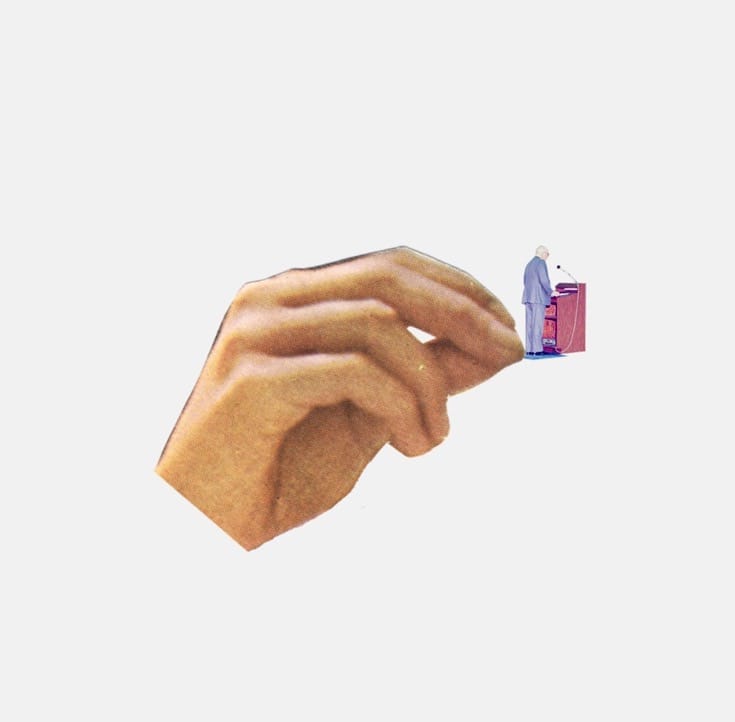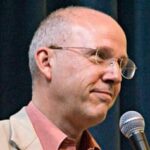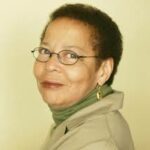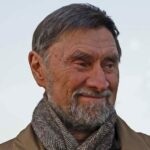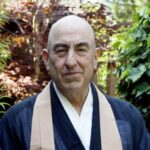A Buddhist Brawl
By Richard Reoch
Not so long ago a brawl broke out in a Buddhist shrine room. A close friend of mine was involved. The retreat leader was injured and needed treatment. It all happened in a very lovely retreat center near where I live. They were having a weekend devoted to nonviolence, and had invited a guest facilitator to lead the retreat. He wasn’t a Buddhist, but knew about group dynamics.
On the second day, the retreat leader proposed a role play. Two of the participants would be “kidnapped” by a terrorist group. The rest would have to negotiate for their freedom. The retreat leader was to play the terrorist with whom they would negotiate. He opened a pack of cigarettes, took out a match and lit up.
“Excuse me,” said one of the participants, “there’s no smoking in the shrine room.”
The leader paid no attention. He smoked on in silence.
“Please put out the cigarette. We don’t smoke in the shrine room.”
“I don’t give a damn about your smoking rules,” said the terrorist coldly. “Do you want to talk about smoking, or do you want your friends back?”
“We won’t negotiate with you until you respect our shrine room,” said someone who was emerging as a leader for their side.
“O.K.,” said the terrorist, “I’ll stop.” He stood up slowly, sauntered over to the shrine, took a last puff and stubbed out his cigarette in the lap of the Buddha.
Gasps filled the room. This was no longer play-acting. People rushed up to see if the Buddha rupa had been damaged.
“What do you think you’re doing?” someone shouted. “That’s a buddha!”
“I don’t give a damn. It’s not my buddha. This is not my shrine room. I’ve stopped smoking. Do you want to talk about your friends or shall I leave?”
People were irate. Events were overtaking them. No one wanted to talk about the hostages; they were obsessed with the assault on the Buddha. One person went up to the retreat leader and talked to him straight from the heart. “We invited you here to lead this weekend. We know this isn’t your community or your tradition. But this is our sacred space. All we ask is that you honor that.”
“Would you like to see how much I respect your space?” he replied. He walked over to the corner and pissed on the floor. The whole room lunged forward. The first person to reach him knocked him to the ground. The rest joined in, shouting and kicking him as he curled up on the floor to protect himself from the blows. Eventually he managed to drag himself out of the shrine room, told the two “hostages” to rejoin their fellow practitioners and abandoned the weekend.
Friends, this is the way these events were told to me. In these dark and turbulent times, I often find it helpful to remember them.
Richard Reoch is the president of Shambhala and chair of the International Working Group on Sri Lanka, which is working to end the Buddhist world’s longest-running war.
The Politics of Interdependence
By Peter Coyote
Normally the word “politics” means “competition between competing interest groups or individuals for power and leadership.” This is actually the fourth of eight definitions for the word listed in Webster’s Third New International Dictionary. The first definition, which I find more useful, defines politics as “the art of adjusting and ordering relationships between individuals and groups in a political community.” The words “adjusting” and “ordering” stress relationship and interdependence, whereas “competition” implies domination and hierarchy.
Relationship and interdependence are “mutually dependent arising”—the core of the Buddha’s understanding. This core insight implies some procedures and goals for the practice of politics that might beneficially alter the way it is presently construed. At the very least it affords an opportunity to consider the practice of politics from the perspective of Buddha.
The first principle might be expressed as: political acts and solutions should afford all beings maximal opportunity to fulfill their evolutionary destinies. (In this context, “beings” should be understood to include insects, plants, animals and the soil itself.) Practically, this requires considering the needs of all beings when evaluating political goals and strategies. To say, “There can be no more factories in such and such a place,” is a flat denial that creates conflict, because there may be people who need the work and others who need the products. An alternative set of statements such as, “We may need factories or power plants, but they should be constructed in a way that does no harm. Furthermore, they should be located where the interests of plants, animals and humans are not negatively affected, and their products should sell at a cost that does not oppress those who require them for survival,” is inclusive. It invites higher degrees of complexity and problem-solving, which in turn invites increased participation.
The second principle might be: If there is no self, there is no other. Our “opponent,” however disagreeable, is highlighting an aspect of mind we may have difficulty owning, an aspect that must be understood and addressed if we hope to make progress. It can only be accessed by intimacy. Resistance builds strength (as it does in a gym) and hardens the position of one’s opponent. Careful evaluation of the first principle will gradually unpack and expose the conflicting “interests” and desires of the proponent. These interests must be pursued to their roots in one’s own psyche until they can be faced without the wrath and judgment that diminish one’s opponent. Doing so will, at the least, win the respect of those with whom you struggle. This respect increases intimacy and a sense of relationship—the deep goal of all political work.
The third principle might be: Procedures or solutions that compromise the dignity (“intrinsic worth”) of one’s opponent imply domination and hierarchy, not relationship. Consequently, they should be excluded from political discourse.
It is hard to imagine too much harm arising from a diligent practice of these three principles. Nothing will work in every situation, and a corollary of all political work must be “No one always wins.” Since outcomes are beyond our control, what we can control are our intentions and personal behavior. By adhering to these three principles, we model the world we hope to establish through politics. This can never be understood as a defeat.
Peter Coyote is a writer, actor and engaged Buddhist. He is the author of Sleeping Where I Fall.
Why Democracy Needs Dharma
By David Kaczynski
Engaging in political action today requires attention to suffering, but too often the attention of politicians is absorbed in their own power. Instead of mindfulness, politicians and their professional handlers use extreme care to avoid a campaign-destroying gaffe. There is a prevailing shamelessness as candidates for high office accept campaign contributions from powerful interests and seek to advance themselves by destroying their opponents’ reputations and careers. Voters’ perceptions are subject to constant manipulation by campaign advertising and the news media. The political game is fueled with money, and its players know that a vote cast in ignorance, fear or narrow self-interest counts just as much as a vote cast thoughtfully for others’ benefit. In this zero-sum game of money, influence and image, winning is left to the winners.
Is a “progressive” politics even possible in samsara?
Buddhist practice is a unique mixture of patience, pragmatism, idealism and openness. The life of a Buddhist includes practice and is itself practice as we aspire to reach enlightenment. Dedicating our practice for the benefit of all sentient beings acknowledges a profound connectedness—the karmic connectedness of beings through interdependent arising and the ultimate connectedness of beings through our shared buddhanature. In Buddhist study and practice we discover the limitations of concepts—not only our concepts about people and circumstances, but our concepts regarding how they ought or ought not to be.
Can there be a truly democratic politics without dharma in the broad sense?
Through practice, we place ourselves in open connectedness with others while avoiding the impatient overreaching of concepts toward some imagined outcome. When we work to benefit others, skillful means emerge from the insights of Buddhist practice and from a deep regard for others’ buddhanature. This is the kind of “liberation” Buddhists know about.
The ideal of democracy in the West, with its emphasis on process, inclusiveness and human dignity, is imbued with many of the qualities and insights of the dharma.
As Buddhists, we also understand that there is no truth or wisdom without compassion. Engaged Buddhism represents an antidote to the politics of fear, hate, violence and separation. We realize that on the path to enlightenment, no one is left behind. Practice and study help us avoid the traps of polarized thinking. We resist war, yet we honor the soldier’s pain and sacrifice. We oppose the death penalty, yet we open our hearts to murder victims’ family members. We know that truth and transformation can be realized through listening and paying attention, as well as through speaking and taking action. We are the ones who don’t turn our heads away, who abide without discouragement, and who avoid becoming a mirror image of the enemy, because in the end we have no enemies.
Can there be a truly democratic politics without dharma in the broad sense? Is there anything more needed in public life than the dharma?
David Kaczynski is executive director of New Yorkers Against the Death Penalty. He and his wife Linda Patrik received national attention in 1996 when it was revealed that David’s brother, Theodore, known as the Unabomber, had been turned in by his own family.
A Peaceful World Begins with Small Peaceful Actions
By Jan Willis
Sharing this tiny planet amidst a vast universe, we are all interconnected beings, incapable even for a nanosecond of complete independence. Yet we conduct our lives as though we each possessed complete and ultimate control of our individual, isolated universes. We imagine enemies and competitors, and we fight for our share. Though we can sometimes envision a peaceful world, it becomes almost natural to see violence as inevitable and peace as impossible. But it is not.
We know in our hearts that violence does not bring peace, that hatred breeds more hatred, and that only with love and compassion can hatred ever truly be appeased. Many of us sometimes happily sing along with the words of John Lennon’s song:
Imagine all the people, living life in peace.
You may say I’m a dreamer, but I’m not the only one.
hope someday you’ll join us, and the world will live as one.
We seem to know innately, with our hearts, what is right, proper and just. We recognize that, as human beings, we all wish to be happy and to avoid suffering. If we could, we would change the world so that every being enjoyed respect, peace, happiness and ease. Yet often it seems we don’t know how, or where, to start.
“As long as there is poverty in the world, I can never be totally rich….As long as people are afflicted with debilitating diseases, I can never be totally healthy…. I can never be what I ought to be until you are what you ought to be.”
—Martin Luther King Jr.
I believe we have to start with very small actions. We may not, by ourselves, be able to change the entire world all at once, but we can begin to change a tiny piece of it in our everyday environment.
We have many wise guidelines. The Reverend Dr. Martin Luther King, Jr., for example, that African-American bodhisattva of our time, reminded us that we cannot truly be free until all human beings are free. He once noted that, “As long as there is poverty in the world, I can never be totally rich….As long as people are afflicted with debilitating diseases, I can never be totally healthy…. I can never be what I ought to be until you are what you ought to be.” But Dr. King also knew—and demonstrated—that any war for freedom must be a war waged with love.
In 1963, as a teenager, I had the good fortune of participating in the “Birmingham campaign” for civil rights led by Reverend King. It was a hopeful time. Feeling part of a larger community of like-minded nonviolent protestors, I felt buoyed up by the possibility of triumph over injustice. When, later, after leaders like Malcolm X, King and the Kennedys had been struck down by violence, a period of hopelessness settled in.
For many of us today that hopelessness still seems to hold sway. And so, before we endeavor to change the world, we need to rekindle hope again. The thing I’ve learned about hope, however, is that it grows from action, not from thought. If we wish to see an enlightened world of peace and justice for all, we have to move beyond merely imagining it, to nonviolent actions, however small, that will help to usher it in. This goes for politicians as well.
Jan Willis is professor of religion at Wesleyan University and author of Dreaming Me: From Baptist to Buddhist, One Woman’s Spiritual Journey.
Four Noble Political Truths
By Ken Jones
First is the truth that individual suffering and delusion are socially supercharged. Collectively, we commit immense follies that, if committed individually, would be pathological.
Second is the truth that the forces that drive history and politics are ultimately the same as those that characteristically drive the individual person. The latter experiences a profound sense of lack arising from the impermanence and insubstantiality of this flimsy self. Part of the social response to this has been to bond with other individuals to create a belongingness identity. It may be our race, our nation, our religion, our social class or whatever.
This collective identity is reinforced by emphasizing the difference of other comparable groupings, and, better still, our superiority, and, even better still, the threat that they pose to us. Ideologies add a gutsy righteousness to this black and white picture. Hates condoned by our community enable us ethically to project all our rancor and frustration onto other communities. Hence the savage warfare, heartless economic exploitation and ravaged environment that occupy such a large part of human history. Hence the ease with which former neighbors and schoolmates have slaughtered one another in the Balkans and countless other killing fields.
This is also an easy way to win elections.
The above process I call “antithetical bonding”—the heart of social delusion, and according to Buddhism the building block of history and society. The concept embodied in these two long words is easy to understand. Every citizen disgusted with conventional politics knows what they mean.
Third, there is a way out of social suffering. Reformers, radicals and revolutionaries have been telling us this for centuries. But the results have at best been mixed and at worst disastrous. We now have all the material resources to provide every citizen of our planet with a decent basic standard of living. But we are unable to do this. The latest ideology—free market, free-for-all capitalism—is actually making the majority of the world’s people poorer. But it provides a rationale for the greedy consumerism of a minority that is wrecking the planet. In short, there must be something else, something indispensable, that will enable us to find our way out of social suffering.
Fourth is the truth that we must cut the roots of our social problem, the roots of aggressiveness, acquisitiveness and ignorance as to what we are really up to and why. We need to expose and wither those roots by creating a radical culture of awakening. This would be a culture in which the work of contemplative inquiry—alone and with others—is no less important than earning a living, raising a family and keeping physically healthy. This would not heal our divisions overnight, but it would begin to dissolve the underlying bloody-mindedness that makes them so intractable. It would nurture wisdom and compassion, and a host of skillful means. Without these resources we cannot build the socially just and ecologically sustainable global commonwealth that is the collective expression of enlightenment. And which, in turn, would provide, for all, a positive environment for spiritual growth.
Ken Jones (1930-2015) was secretary of the UK Network of Engaged Buddhists and author of The New Social Face of Buddhism.
Nowhere to Spit
By Alan Senauke
We’re in the midst of a long political season, like one of those California seasons that has no clear beginning or end. Primaries, conventions, elections—and then it starts all over again the next year. In this season the question of “enlightened politics” naturally arises for people of all religious traditions. In our strange and violent world, what kind of Crazy Glue could make a compound of two notions headed toward very different horizons—enlightenment and politics.
The notion of enlightened politics brings to mind an old Zen saying: “There is no place in the world to spit.” There is no place we can ignore, defile or bomb because we ourselves are everywhere.
The notion of enlightened politics points to two facts of life. First, all beings yearn for freedom and happiness. Second, we live in communities, nations and cultures that bind our well-being to the well-being of others. This is what Thich Nhat Hanh calls “interbeing.” It means that not only must we think globally and act locally, but we must also think locally and act globally. The notion of enlightened politics brings to mind an old Zen saying: “There is no place in the world to spit.” There is no place we can ignore, defile or bomb because we ourselves are everywhere.
Our current political leaders seem to have a lot of trouble understanding this.
The notion of enlightened politics implies policies rooted in the virtues of generosity, compassion and wisdom, rather than the poisons of greed, hatred and delusion. And then we need an “enlightenment platform” expressing these virtues. We could begin with what the ancients call “the four requisites”: food, clothing, shelter and medicine. I would humbly add a fifth requisite: self-determination.
This platform means that no one goes hungry, thirsty or unclothed; that people have homes to protect them from the elements; that doctors and medicine are available to all, with an emphasis on hygiene and preventative care. Finally, it means that people have the economic and political power to determine the course of their lives. With these requisites in place, women, men and children have an opportunity to develop a true spiritual life of sufficiency, contentment and gratitude.
Enlightened view means, as Suzuki Roshi puts it, seeing “things-as-it-is.” So we turn back to the real world where political realities—in fact, all realities—are impermanent and incomplete. This means compromise—working for and voting for candidates who will do the least harm: Who will admit that America’s way in the world has been a path of arrogance and power, and intends to go another way? In faith that the dharma will flourish, that candidate will have my vote.
Hozan Alan Senauke is senior advisor to the Buddhist Peace Fellowship, where he was executive director for eleven years.
It’s Time
By Charles G. Lief
Our American democracy is, for the most part, partisan in expression, hierarchical, and frequently inaccessible to those without wealth or personal connections. In the U.S., of course, there are models of grassroots democracy: I am writing this from Vermont, where literally dozens of town meetings are just concluding at which any resident may show up and find a way to be heard. There is, however, limited power in any of our voices at those democratic displays beyond the occasional contrarian rejection of a school budget or the like. Even in Vermont, this home of a “purer democracy,” the power is concentrated and guarded.
In order to bring systemic transformation to bear we need to find ways to engage within the system. Unfortunately though, Americans generally become aware of the political world only every four years. And that experience is as “unenlightened” as one can get: We encounter the relentless begging for money, observe increasingly arrogant and nasty discourse and hear the unending mantra that the ends justify the means (as if a pure lotus will arise from the mudslinging). Then, in November, following our solemn, secular ritual, we wake up, hungover, and remember that maybe the means are important after all.
In 1968, I arrived in at the Democratic national convention in Chicago a full-time volunteer for the reformist Eugene McCarthy presidential campaign, sleeping at the Hilton Hotel with the in-group, ready to change the system from within. I was steeped in the optimism of a seventeen-year-old, feeling that our country, wounded by war, racial injustice and assassination, was ready for real transformation. By the end of the week, though, I discovered cynicism and teargas. By the next year or so, I met a teacher and mixed that experience with the dharma. Thirty-six years of fermentation is about enough, and it is time to get back to work.
Charles G. Lief is the president of Naropa University. For ten years he was the president of the Greyston Foundation in Yonkers, New York.
